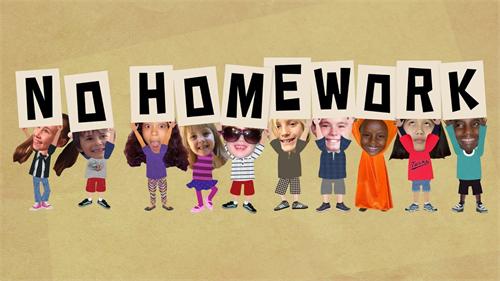Debating ‘No Homework’ Policies: Data from 100,000 Families Worldwide

Globally, the debate over whether or not to assign homework has become a heated topic in the field of education. Data from 100,000 families reveals that homework is no longer just an academic task—it has become a key factor affecting parent-child relationships, family dynamics, and student mental health.
Statistics show that 56% of students consider homework a “major source of stress,” and parents spend an average of 6.7 hours per week helping their children with assignments. The pressure is evident. For example, in Spain, a 2012 OECD survey found that primary and secondary students spend an average of 6.4 hours a week on homework—one-third more than students in other developed countries. Following this report, CEAPA, an organization representing 12,000 Spanish parents, publicly opposed the homework system.
In fact, the United States has flip-flopped on homework policies for nearly a century—banning it at times, then enthusiastically promoting it again. In 1983, the U.S. government released a dramatically titled report claiming that the country's education system was “mediocre” and that “a nation at risk” was emerging. But the problem goes back even further. In the 19th century, American students were already burdened with heavy workloads, and classrooms were dominated by rote memorization and corporal punishment. Most children didn’t make it past fourth grade, as families needed them to work. Despite the change in times, today’s chaotic scenes of parents struggling alongside their children over homework are not so different from those in the past. Francis Amasa Walker, an economist and former president of MIT, once recalled tearfully coaxing his frustrated, angry child to bed after struggling with math homework, which he described as meaningless and exhausting.
In recent years, calls for “no homework” policies have grown louder. In 2004, France’s High Council for Education reported that many 13-year-olds spent at least two hours per day on homework—yet their academic performance was far from ideal. An international study covering 18 countries found a surprising trend: the more time students spent on homework, the worse their grades tended to be. PISA research echoed these findings, suggesting that excessive homework can lower pass rates.
Some countries have already explored “no homework” or “light homework” models with success. Finland and Japan are standout examples. Finnish students have little to no homework, yet consistently top global rankings in the PISA assessments. Their secret? “High classroom efficiency + free exploration after school.” Finland’s approach doesn’t simply mean “no homework”—it is supported by a comprehensive, student-centered education system. Teachers use project-based learning, group collaboration, and other flexible methods to spark curiosity and build creativity, autonomy, and well-rounded skills. Their curriculum includes not just core subjects like math and language, but also arts, physical education, and practical skills, promoting holistic development.
Singapore takes a more “precision-managed” approach: for students in grades P1–P2, daily homework is capped at one hour, and holiday homework is often eliminated altogether. The Ministry of Education advocates for concise and meaningful homework, banning repetitive or punitive assignments in favor of interdisciplinary and practical tasks. Examples include writing book reviews or conducting small-scale research—activities that are far more engaging than copying formulas. Italy, since 2017, has also implemented “homework reduction” policies. Some schools now run regular academic lessons in the morning and use the afternoon for hands-on activities to reinforce learning.
The push for “no homework” is not just about stress reduction. Experts argue that homework doesn’t effectively foster student independence or responsibility—traits that should be cultivated naturally through school-based learning. Moreover, studies show that 95% of parents are involved in helping their children complete homework, meaning that so-called “self-discipline” is often the result of parental supervision. This involvement can actually erode student autonomy and strain family relationships. In fact, 72% of children report disliking school because of homework.
Naturally, opinions on homework remain deeply divided around the world. Finland has shown that “less homework + high autonomy” can still produce top-performing students, while Singapore demonstrates that a balance of “tiered homework + strict time limits” can maintain both efficiency and well-being. Meanwhile, in places like Canada and Ireland, even presidents and parents are publicly clashing over the issue.
Perhaps the only consensus is this: education should not be a “family battlefield” where children stay up until 3 a.m. and parents break down in frustration. As one netizen put it: “Homework is fine, but please give childhood back to our kids.” Instead of piling on assignments, we should be asking how to create learning environments that inspire curiosity and encourage independent discovery. Shifting the focus from “how much homework” to “how meaningful is the learning”—this is the direction education should truly be heading.







